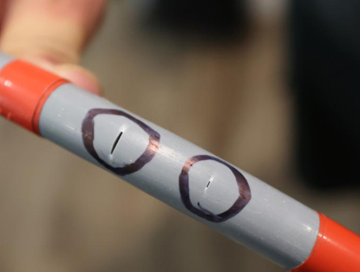Phase 2 of the RTA reforms go live on 29 July
11 July 2024"Phase 2 of the RTA reforms will come into effect on 29 July. This includes limiting rent increases to 12 months, pets, minor modifications and the new dispute resolution process."

Phase 2 of the RTA reforms will come into effect on 29 July. This includes limiting rent increases to 12 months, pets, minor modifications and the new dispute resolution process.
12-month limit on rent increases
The 12-month limit on rent increases will apply to periodic tenancies as soon as the legislation comes into effect on the 29th. This will negate any 60-day notices already issued.
For fixed-term tenancies, it will apply once the current term of the lease agreement ends. Six-month rent reviews in leases signed before 29 July will still be enforceable.
Pets and minor modifications
Pets* and minor modifications will be allowed in most cases, with the tenant needing to seek permission from the landlord. There is a specific process to follow, with the tenant required to seek permission using an approved form. The landlord will then have 14 days to respond and act, if they want to set conditions or object to the application.
We break down the pets and minor modifications reforms further below.
Dispute resolution process
Disputes about minor modifications and pets will be decided by the Commissioner for Consumer Protection, who will review submissions and potentially seek more information from both sides before making an independent ruling. DEMIRS have recruited a team to deal with these disputes to ensure a timely response.
Landlords and tenants will have seven days to appeal a decision to the Magistrates Court, and the Commissioner can elect to refer disputes straight to the Magistrates Court.
Pets
Landlords can set conditions on having a pet, in some cases they will need to seek approval for the conditions from the Commissioner.
Conditions that don’t require approval:
- The number of animals that may be kept at the premises
- The cleaning, maintenance or fumigation of the premises in relation to keeping pet.
Conditions that require Commissioner approval:
- Another type of reasonable condition, such as pet must be kept outside or must not use strata common area.
Landlords can also say no to pets, where having a pet would contravene a written law, local law or scheme by-law.
They may also object on other grounds but will have to make an application to the Commissioner. These grounds include:
- Risk to the health and safety of a person
- Undue hardship to the landlord
- The premises are unsuitable
- Unreasonable number of pets being kept at the premises
- Likely to cause damage to the premises that could not be repaired for less than the security bond
- Other prescribed grounds, such as the dog is deemed a dangerous dog under the Dog Act.
REIWA advocated for the scope of the pet bond to be increased to cover damage and cleaning relating to having a pet at the property. This will take place, but it will not come into effect until the new bonds disposal process is enacted in early 2025.
The legislation makes it clear tenants have responsibility for pets, including nuisance and damage, and that damage caused by a pet is not fair wear and tear.
Minor modifications
The legislation lists the following minor modifications.
- Picture hook
- Screw for a wall mount, shelf or bracket
- Wall-anchoring device
- Water-efficient shower head
- Hand-held shower head
- Lever-style tap
- Security light, alarm system or security camera
- Wireless doorbell
- Window covering
- Adhesive child-safety lock on a drawer or door
- Pressure-mounted safety gate
- Lock on a gate
- Child-safety device on a window
- Lock on a letterbox
- Draughtproofing
- Telephone or internet connection
- LED light bulb which does not require a new light fitting
- Anchor for a blind or cord
- Non-permanent window film
- Flyscreen on a door or window
- Vegetable or herb garden
- Painting a room.
For the following modifications, the landlord can impose a condition that the work be carried out by an appropriately qualified person, without having to seek approval from the Commissioner:
- Lever-style tap
- Hardwired alarm system, security camera or security light
- Telephone or internet connection
- Non-permanent window film
- Painting a room.
A condition for the tenant to provide a copy of the invoice for the work can also be imposed.
REIWA strongly advocated for the need to impose a condition requiring painting to be carried out by a professional and we are pleased this has been included in the regulations.
The landlord may impose other conditions, but will have to seek the approval of the Commissioner.
Landlords can say no to a minor modification where:
- A written law or scheme by-law specifically prohibits the change
- The modification would disturb asbestos
- The property is heritage listed.
They do not need to seek Commissioner approval in these cases.
They will need to seek approval in they are objecting on the following grounds:
- Modification would be unsafe or make the premise unsafe
- Likely to require modification to other residential premises or common property in a strata scheme
- Undue hardship for the landlord
- Additional maintenance costs for the landlord
- Removal or restoration would not be reasonably practicable or likely to cost more than the security bond
- Valid notice of termination
- Otherwise unreasonable in the circumstances.
One of REIWA’s key advocacy points regarding modifications was the need for the tenant to ‘make good’ at the end of the tenancy. The legislation provides that the tenant is responsible for the costs of making modifications, maintaining modifications, removing a modification and restoring premises.
If you want more information about the changes please speak to your property manager or contact the REIWA Information Service on 9382 8200.



.tmb-rcarousel.jpg?sfvrsn=94ec25f9_1)





.tmb-rcarousel.jpg?sfvrsn=24ed8b20_1)